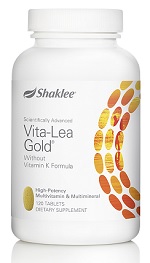 Sodium gets a lot of negative press. In fact, so much bad press that people tend to forget that it is classified as a major mineral necessary to healthy nutrition.
Sodium gets a lot of negative press. In fact, so much bad press that people tend to forget that it is classified as a major mineral necessary to healthy nutrition.
Of course, over time, too much sodium leads to increased risk of heart disease, stroke and high blood pressure, the development of kidney stones and other types of ailments. Still, the body does need more than 100 milligrams per day to function properly. Unfortunately, most people consume far more sodium than is necessary.
Luckily, for most of us, most of the time, the body is usually able to eliminate the excess.
The dietary mineral sodium is an electrolyte. This means that it, along with chloride and potassium, helps to control the electrical charges that occur between cells. These electrical charges are used by cells to communicate with one another. The electrical charges are also what give our five senses their ability to see, smell, touch, hear and taste.
Approximately 30% of the sodium found inside the body is stored in the bones.
The balance of this mineral is going to be found in various body fluids.
Sodium is a main component of blood plasma and approximately 60% is contained in the fluids that surround cells. About 10% of the body's sodium is stored inside the cells. This division helps maintain a proper balance of water inside as well as outside these cells.
Its presence in the circulatory system helps the body keep blood pressure and the overall volume of blood flow within normal ranges. Sodium helps keep the blood from clotting, and, in the blood itself, sodium together with potassium helps maintain the blood's delicate pH balance. Sodium also helps carry important nutrients to the cells.
In the digestive system, sodium helps the process of metabolizing foods into energy. It protects the stomach lining by preventing the acids normally present inside the stomach from burning it.
Sources of Sodium
High quantities of sodium are in most processed and preserved foods. Potato chips and pretzels, hot dogs, ham and bacon, tomato sauces, ketchup, lunch meats and canned soups are good examples. Lower levels of sodium also occur naturally in many foods including meat, chicken, eggs, nuts, seafood, fish, carrots, beets, artichokes, cauliflower, celery and even milk. Since so many of the foods we eat in a normal diet already contain salt, it isn't actually necessary to add more prior to consumption.
Sodium Deficiency
It's good that the dietary mineral, sodium, is so easy to obtain as the body loses sodium every day.
Sodium escapes from the body by way of the urine and also via sweat, which is why a considerable amount is lost on hot days and after a strenuous exercise session. Because so many foods contain sodium deficiencies are pretty rare in normal circumstances. However, a serious loss of sodium can result from excessive vomiting and/or diarrhea. Diuretics, such as those that are prescribed to help lower blood pressure, can also deplete sodium levels.
A deficiency in sodium alone can allow water to enter the cells causing the cells to become swollen. Water intoxication may result. Symptoms include fatigue, apathy, muscle twitching and anorexia.
Symptoms of a sodium deficiency combined with a loss of water, most often include muscle cramps and weakness, dizziness, an inability to concentrate, memory impairment and nausea. If the sodium deficiency becomes serious, the circulatory system can collapse and the body can go into shock.
Sodium Supplements
Frankly, while the best daily multivitamin may or many not have sodium as an ingredient, it probably is not generally necessary to supplement this dietary mineral due to its ready availability.




